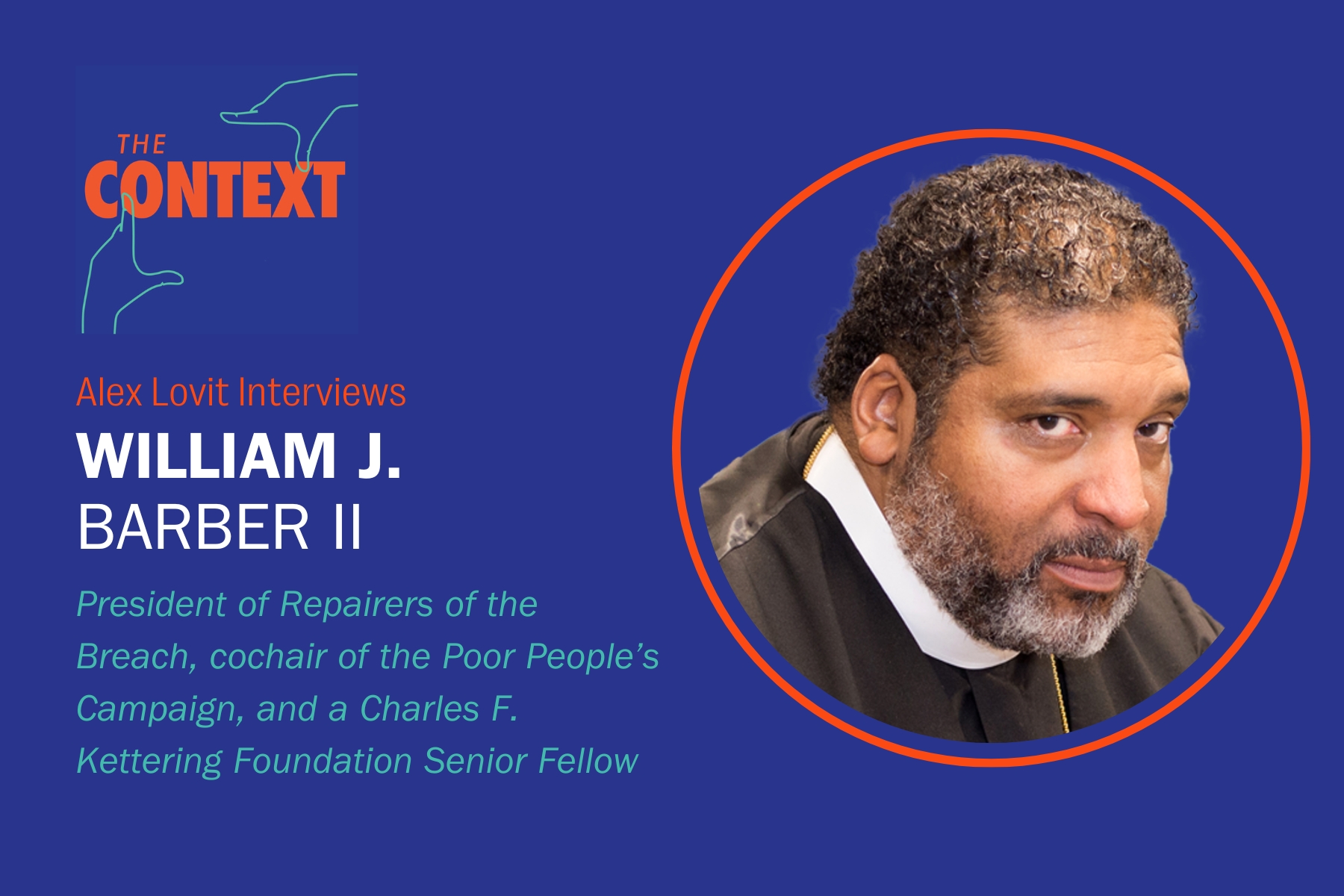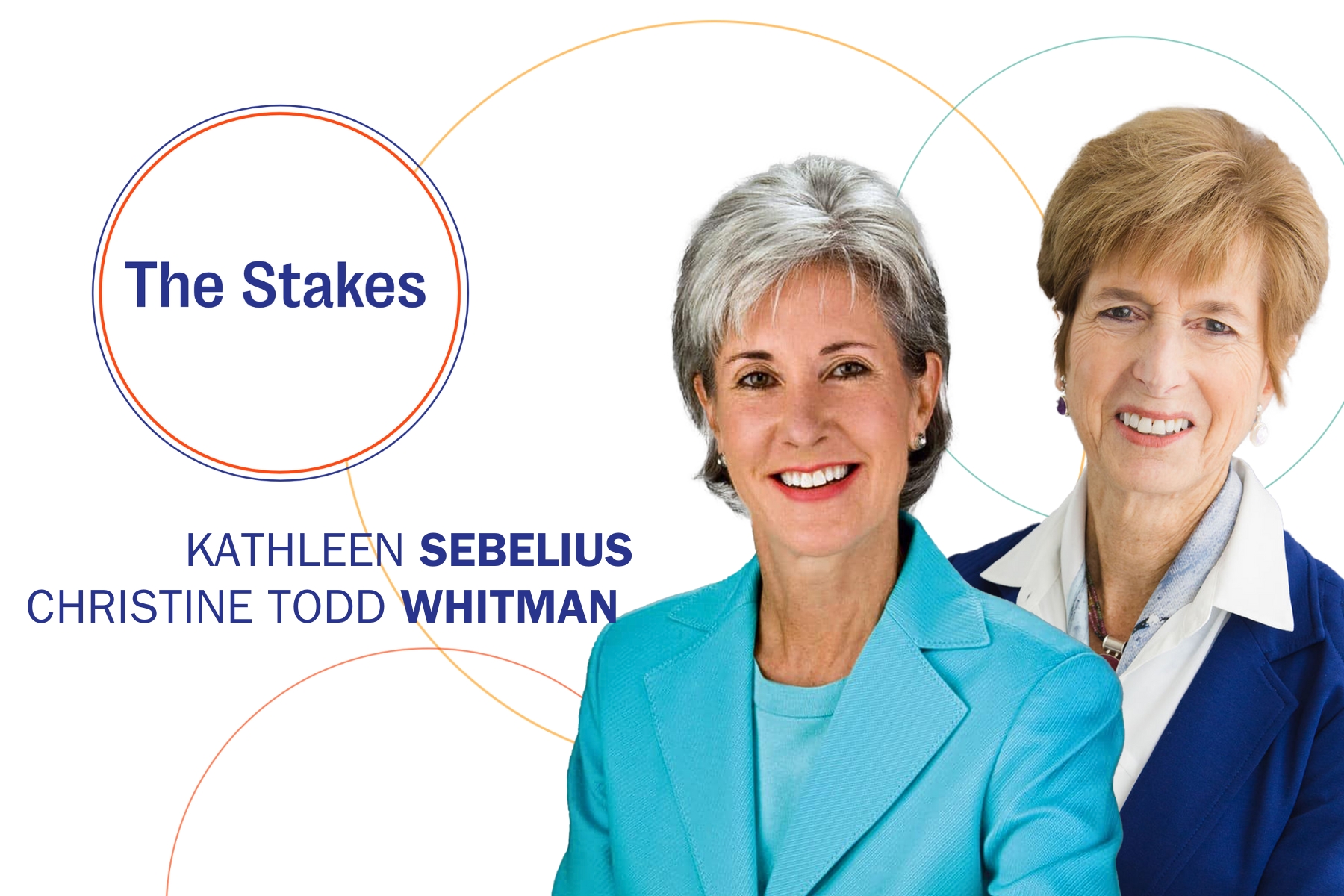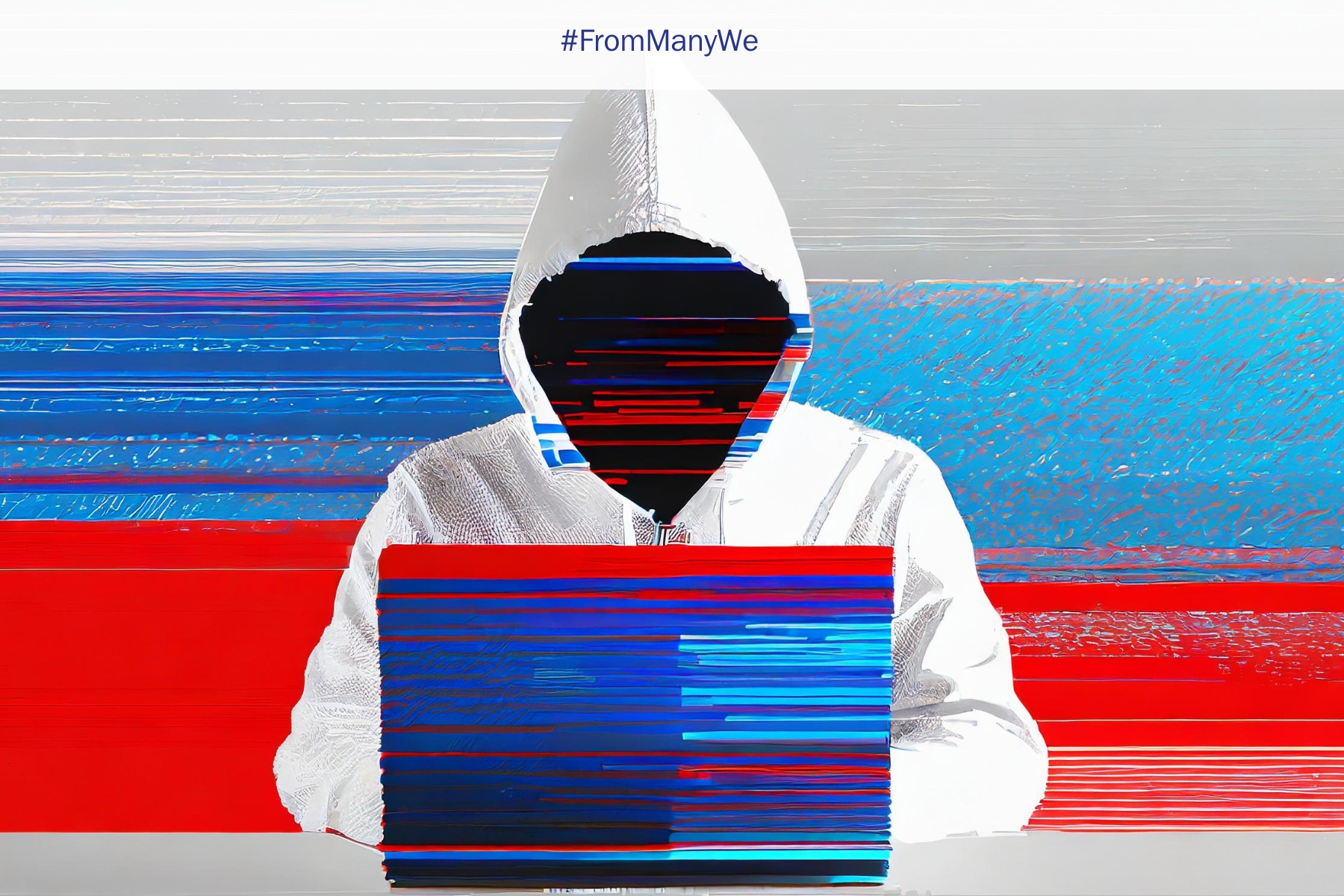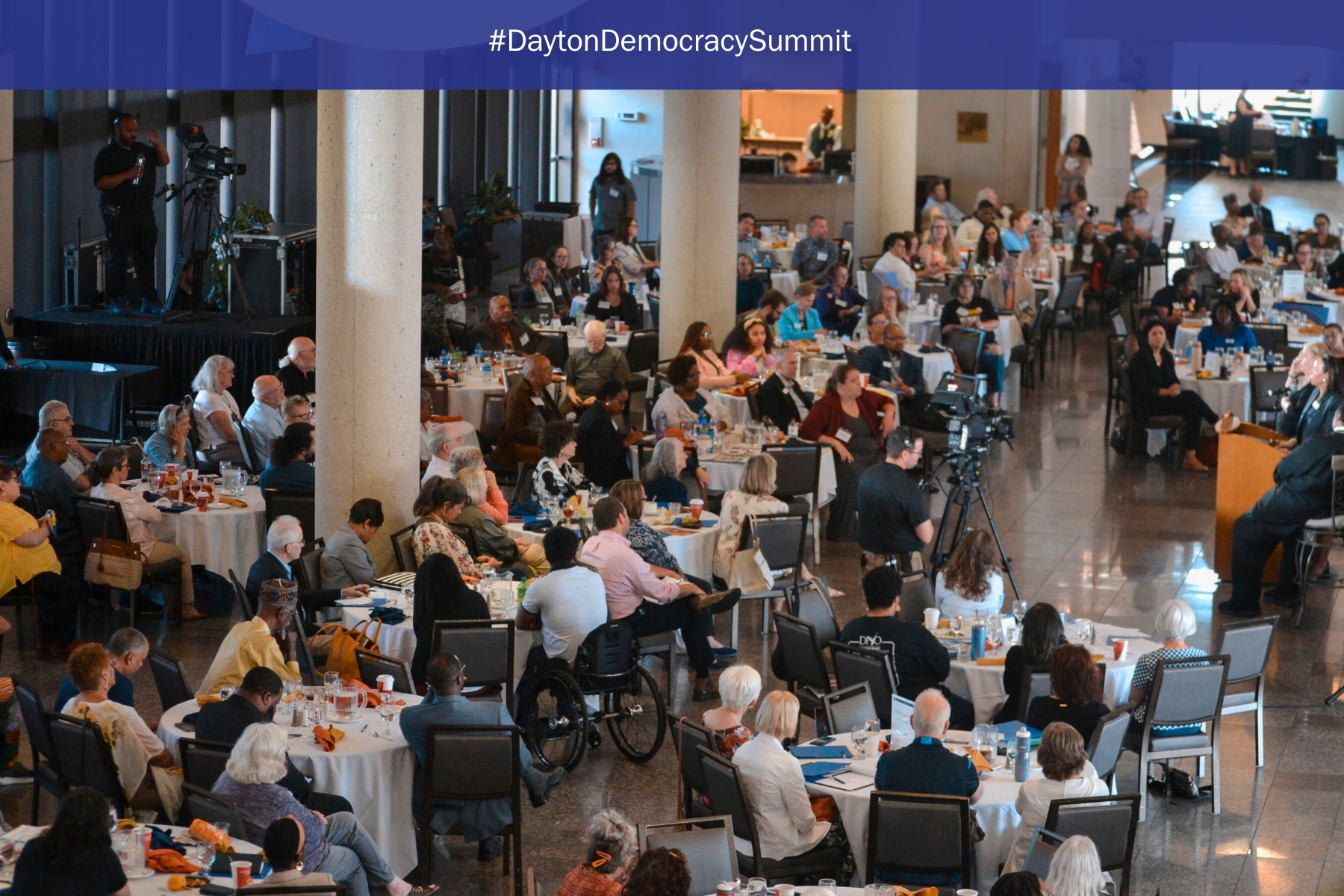Sebelius, Whitman, and the Art of Bipartisanship
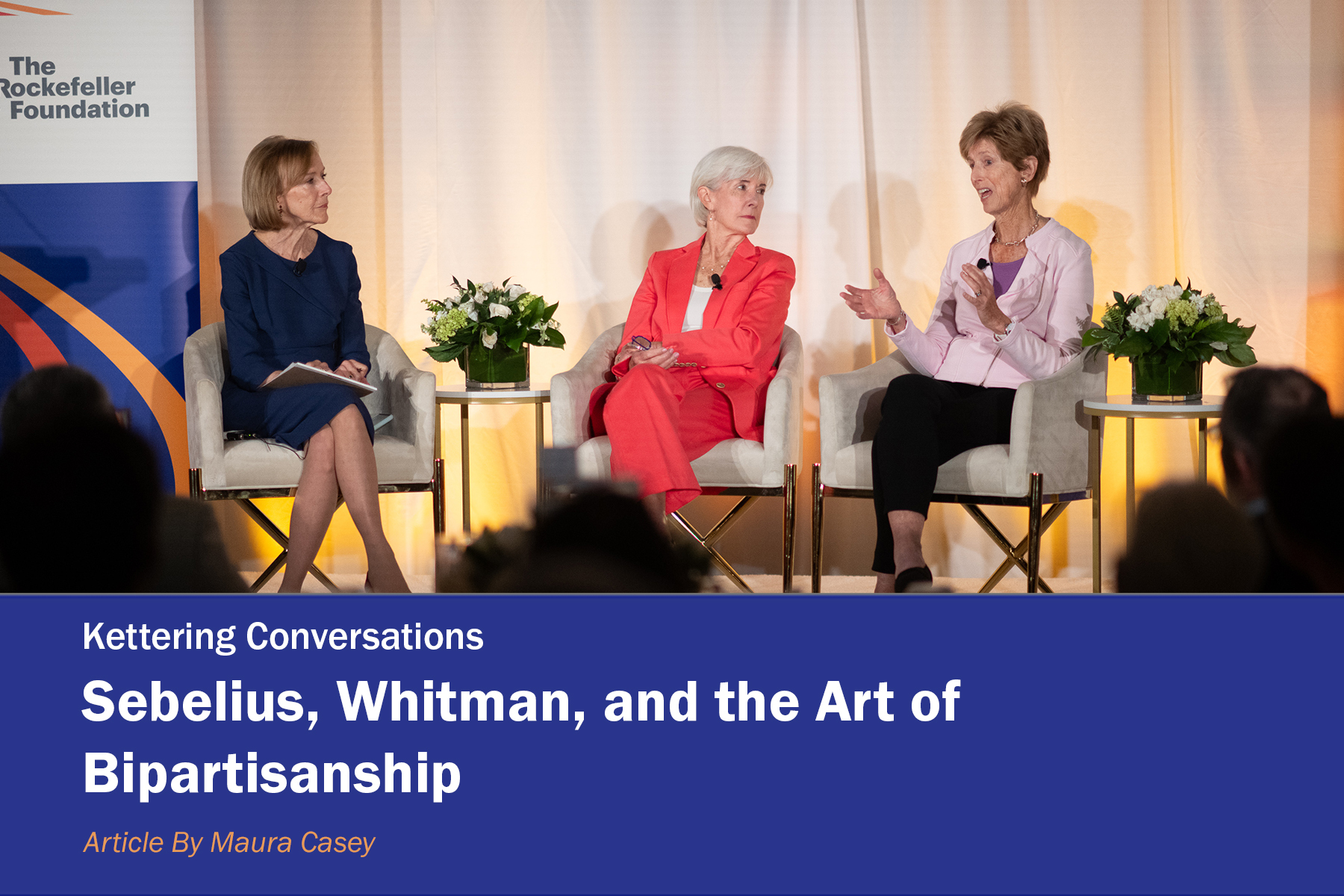
This article is part of a series of stories covering three panels from Kettering Conversations on Democracy, “Democracy Is Not Partisan.” This event, a collaboration between the Rockefeller Foundation and the Kettering Foundation, was held on May 9 at the Mayflower Hotel in Washington, DC.
Former governors Kathleen Sebelius and Christine Todd Whitman know a thing or two about the kind of bipartisanship that gets legislation passed against the odds. It takes hard work and a reliance upon relationships, the Kettering Foundation senior fellows said, in the session “Governing across Divides.” Judy Woodruff, former PBS NewsHour Anchor and Kettering’s Kathering W. Fanning Fellow in Journalism and Democracy, moderated the discussion between Sebelius, Kettering’s David Mathews Democracy Fellow, and Whitman, a Kettering senior fellow.
Sebelius, a Democrat, was the first female governor of Kansas, a traditionally red state, before she became President Barack Obama’s Secretary of Health and Human Services. Republican Christine Todd Whitman was the first female governor of New Jersey, a traditionally blue state, before she became administrator of the Environmental Protection Agency (EPA) in President George W. Bush’s administration.
Woodruff asked how well our democracy is doing in working across divides. Whitman noted a few good signs, including the House of Representatives’ bipartisan vote to secure money for Ukraine and Israel and a vote on May 8 to keep House Speaker Mike Johnson in power. But the flashes of bipartisanship are rare. “In general, I don’t think our democracy has ever been this threatened,” Whitman said.
Sebelius agreed, pointing out that despite Congress passing legislation, the whole political system is still broken. Americans not only doubt the ability of the elected bodies to perform adequately, but also the courts.
Woodruff noted that on the previous day, Republican Representative Marjorie Taylor Greene attempted to remove Speaker Johnson, a member of her own party, for working with Democrats. “Is that now the operative thinking in Washington?,” she asked.
Whitman said when she was meeting with senators before her appointment to the EPA, a senator told her never to use the word compromise because immediately people think they have lost something. “How did we get here? . . . Look in the mirror, because for too long we didn’t vote in primaries,” Whitman said. She pointed out that only about 10 percent of voters cast ballots in most primaries, and they tend to be on the political extremes; 55 percent is considered a good turnout for presidential elections.
Sebelius added that only about 62 percent of eligible adults are registered to vote, so an election turnout of 55 percent is actually 55 percent of 62 percent. But she also pointed out that there have been systemic efforts from the political right to make it harder to vote, from weakening the Voting Rights Act to moving polling places. She said that people would be incensed if the same tactics of changing rules and making it harder to participate occurred in football games. “I do live in the home of the Kansas City Chiefs. . . . If you said at the end of the Super Bowl, the 49ers won the game, the game was rigged. We’re going to take the trophy home, and we’re going to change the rules the next time to make sure that they can’t rig it again. People would be outraged.”
Woodruff asked how they worked across party lines to pass legislation in their states. Both women agreed that it came down to relationships. Sebelius said during her tenure, the Kansas legislature had a Republican majority. She noted that she leveraged the relationships and trust she built while serving in the legislature. Whitman said she had a legislature dominated by Republicans, but they were further to the right than she was. She recalled a time when states had some room to make decisions relative to welfare reform. In this particular instance, working across party lines meant finding allies on both sides of the aisle who were willing to work with her.
So how can it become acceptable again to work with the other side? Whitman said that one answer lies with her work with the Forward Party, on the ballot in five states, which is different than any conventional party because it doesn’t dictate what the candidate does. Instead, it supports elected officials from any party who agrees, among other things, to uphold rule of law, support the US Constitution, make it easier to vote, and ensure that anyone who is eligible to vote gets to vote.
Sebelius is not sure a third party is the right solution. Instead, “a broad coalition within an umbrella” is needed. When Democrats voted to keep Johnson as House Speaker, you saw “people who said, ‘We want a system to be able to work, we want to be able to govern, we want to be able to do our jobs.’ And that caused a vote that [crossed] a lot of party-line principles, a lot of philosophical differences,” she said.
Whitman and Sebelius discussed ranked choice or fusion voting, redistricting by an independent body, term limits, and open primaries as other possible solutions.
Both governors were clear that voters need to take notice – and make their voices heard on election day. When “voters say one thing, the legislature does another, I think the solution in this case is not only more talking and listening, but going in, firing the people who are blocking that democratic process,” Sebelius said.
To watch the full panel, click here.
